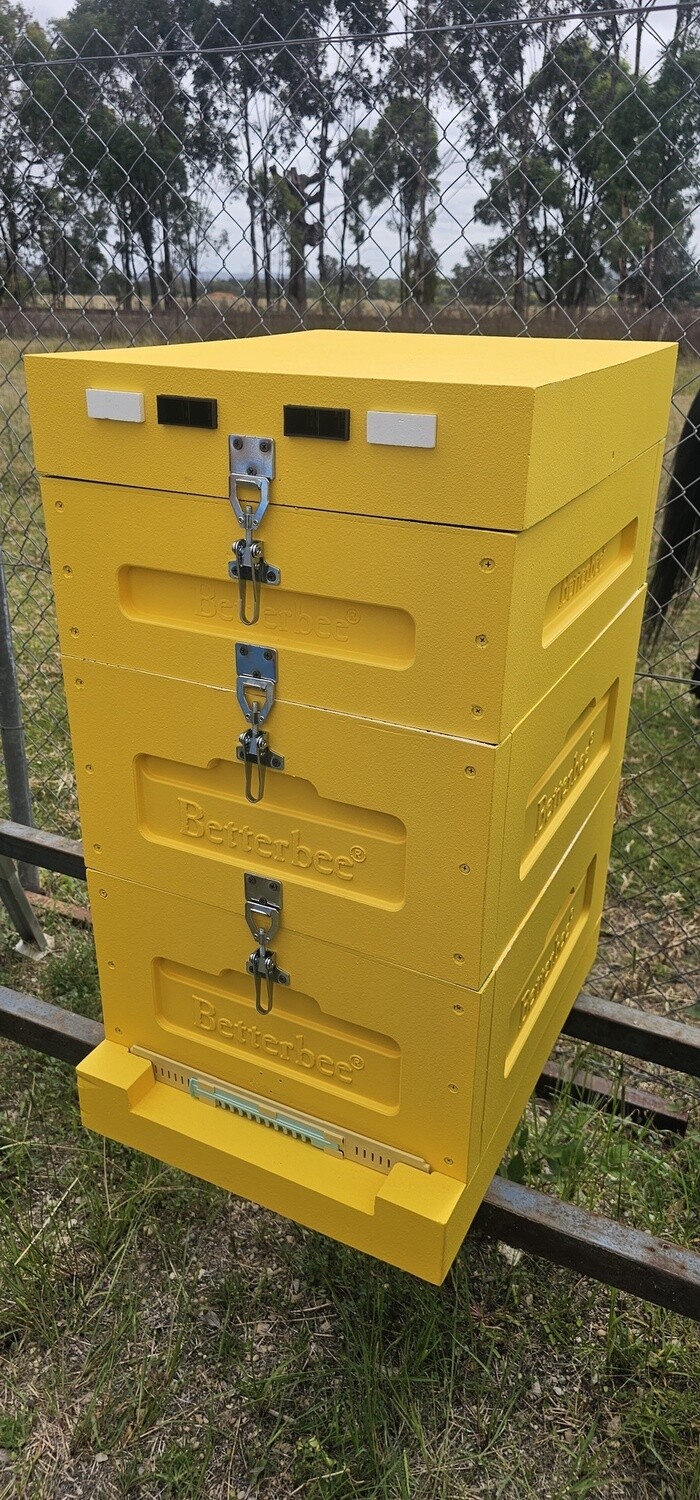10 Frame Poly Beehive (2 x FD body, 1 x 1/2 body), painted
10 Frame Poly Beehive (roof, 2 x body, 1 x body 1/2, bottom), painted
Lyson 10 frame polystyrene beehives offer several benefits and uses for beekeepers, combining modern materials with traditional beekeeping practices. These hives are designed to provide a durable, lightweight, and well-insulated environment for bee colonies, which can lead to improved bee health and productivity. Below are the key benefits and uses of Lyson polystyrene beehives:
Benefits
Excellent Insulation
Polystyrene provides superior insulation compared to traditional wooden hives. This helps in maintaining a more constant internal hive temperature, which is crucial for the bees' ability to thermoregulate, especially in regions with extreme weather conditions - both hot and cold. The insulation properties can lead to extraordinary over-winter success, as reported by a beekeepers with decades of experience who switched to using polystyrene hives. The insulation also means that in cold regions, additional wrapping or insulation blankets, which are necessary for wooden hives, are not needed for polystyrene hives.
Durability and Low Maintenance
Polystyrene hives are not prone to rot, fungus, termites, or other forms of degradation that can affect wooden hives. This makes them nearly indefinitely durable and reduces the maintenance required to keep the hives in good condition.
Additionally, the moisture from the hive, which can contribute to the slow destruction of wooden materials, does not affect polystyrene hives in the same way.
Lightweight and Easy to Handle
The lightweight nature of polystyrene makes these hives easier to handle and transport compared to their wooden counterparts. This can be particularly beneficial for beekeepers who manage multiple apiaries or need to move hives regularly.
Compatibility with Standard Frames
Lyson polystyrene hives are designed to fit standard Langstroth plastic and wooden frames, making them a versatile choice for beekeepers who may already have existing equipment or prefer certain frame types.
Uses
Improved Over-Wintering
The excellent insulation properties of polystyrene hives make them particularly useful for beekeepers in colder climates, where maintaining hive temperature during the winter months is critical for colony survival.
Versatile Beekeeping
Whether beekeepers are operating in hot or cold climates, the insulation provided by polystyrene hives helps in regulating nest temperature, reducing the need for honey to heat the hive in winter and water to cool it in summer. This can lead to more efficient use of the bees' resources.
Long-Term Beekeeping Investment
Given their durability and low maintenance requirements, Lyson polystyrene hives can be seen as a long-term investment for beekeepers. While the initial cost may be higher than wooden hives, the reduced need for replacements and repairs can make them cost-effective over time.
Educational and Research Applications
The durability and ease of handling of polystyrene hives also make them suitable for educational and research purposes, where hives may need to be transported or manipulated frequently.
In summary, Lyson 10 frame polystyrene beehives offer a modern alternative to traditional wooden hives, with benefits including excellent insulation, durability, low maintenance, and ease of handling. These features can contribute to improved bee health and productivity, making them a valuable tool for beekeepers facing various climatic conditions and operational needs.

